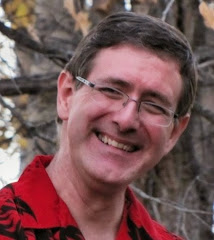Joseph was
in a foxhole of his own making. His
father Jacob was passing on the family history of bad choices, of playing
favorites, and of the twelve brothers, he was the favorite. It didn’t help that he had three step moms
who had all competed for their husband’s affections, and that competition had
been passed on to the sons. If you read
the whole story of Jacob and his children, even the boys’ names were reflective
of the squabbles and fights between the women.
Sterility was a real issue of faith for Jacob’s wives, like Abraham and
Sarah, and Isaac and Rebecca. Having a
baby was a sign of God’s favor so the children were named things like “surely
my husband will love me now”, or “God comforts me because I am hated” or “I
have wrestled with my sister and have won”.
Can you imagine growing up in such a family? Talk about ugly dynamics!
So, Joseph,
which by the way means either “God has taken away my shame” or “May God give me
another son” has grown up in a family of competitiveness and anger. It must have been ugly and embarrassing . His mother died giving birth to
his full brother, so he had no mother to take care of him. And Jacob, not remembering, or maybe not
thinking of the damage done by his father and mother’s playing favorites with
him and Esau, plays favorites again.
How many
times do we fall into the unhealthy patterns of our families, saying things
that we swore we would never say, hearing ourselves talking like the people who
parented us. Children copy what they see
their parents doing. We know that people
who grew up in addicted or violent homes or who are bounced through the foster
care system have a much higher chance of being addicted or in jail because of
the childhood trauma of a toxic family experience.
Dr. Gabor
Mate, when he gave his talk at the Nancy Applebee theatre last fall, talked
about being born during the Second World War to a Jewish mother. Even though neither of them ended up in a
concentration camp, the trauma of having a mother living in a constant state of
fear caused Mate to live with a high degree of anxiety that led to some
strongly addictive behaviours that while they didn’t revolve around drugs,
affected his professionalism and his finances.
Childhood stress like Joseph and his brothers experienced led them into
angry confrontations.
Joseph was a
bragger and a tattle tale. He paraded
around in his long robe and would tell them of his dreams of glory when the
older ones would no longer have the power to bully him. The brothers had no ‘shalom’ for him and so
decided that murder was a perfect solution to the arrogant brat. That’s chilling to say the least. They sold him off to become a slave in
Egypt. I wonder what he was thinking
when he realized that his spying and tattling had made them that hostile to
him. There’s no record of him being
repentant or afraid or ashamed or anything.
But he is in a foxhole and there is no one who will help rescue him from
going into slavery in a foreign land.
Peter, in
his way, is also in a foxhole. The sea
of Galilee is not terribly wide, but it is chaotic. Storms come up without warning, and back then
there was no such thing as a swimming lesson at the pool in the summer. Drowning for all the disciples is a real possibility.
I remember
someone in the Maritimes telling me that some sailors deliberately decided not
to learn to swim so that if they did get caught in a storm, they would drown
more quickly and peacefully. Fishing was
a dreadful job, and water was the most chaotic and dangerous place to be. This story points to Jesus as the one who can
still the chaos and make it possible to get through the most difficult
things. But when Peter takes his eyes off
Jesus, he begins to drown.
I meet a lot
of people who are in foxholes. Some of
those foxholes are of their own making, some are full of the family toxic
stories and experiences that they had witnessed as children. What is interesting are the folks who are climbing
out of the foxholes. I am starting to
see patterns that suggest the ones who will make it out, and the ones who will
stay stuck or get even deeper into their foxholes.
The number
one factor is humbleness. Peter doesn’t
say, “If you can walk on water, I can too just watch me”. There’s also a level of trust, “If you tell
me to walk to you, I will do what you tell me.” And when he keeps his eyes on
Jesus, he can make it. He needs to remember
to trust and watch Jesus. When tragedy
strikes, how many of us think we will go it alone, tough it out, pull ourselves
out by our own bootstraps? But again and again, we find that its when we reach
out for help, asking Jesus to be present in the midst of our foxholes, that we
find new hope, new beginnings and a more godly, more shalom-filled way of life
that fills, sustains and supports us on this journey we call life.

